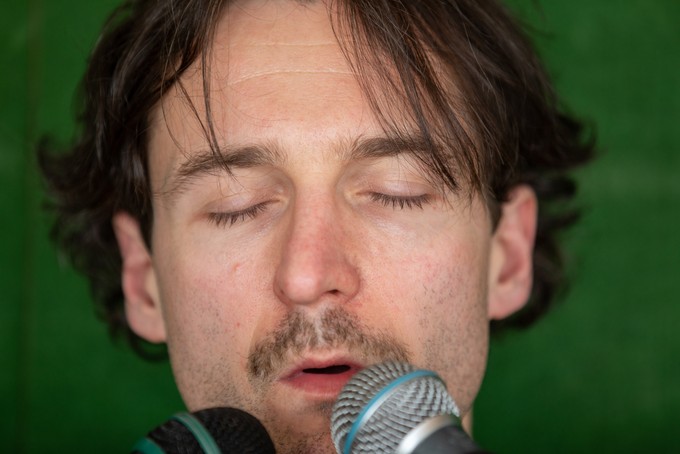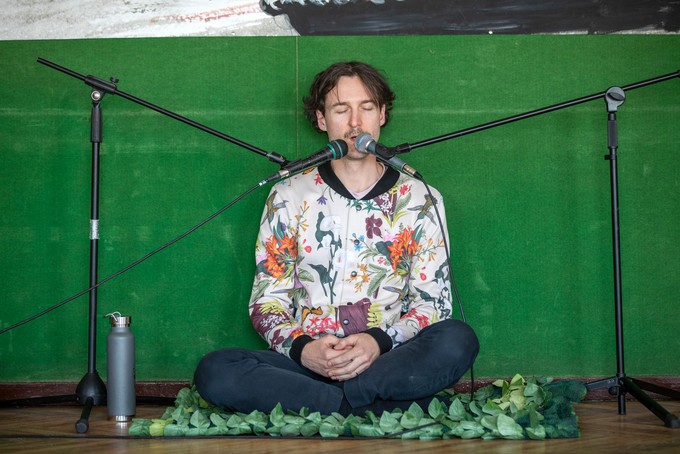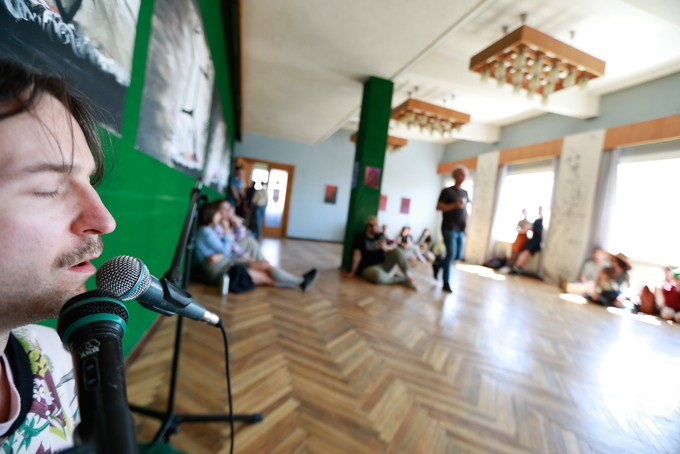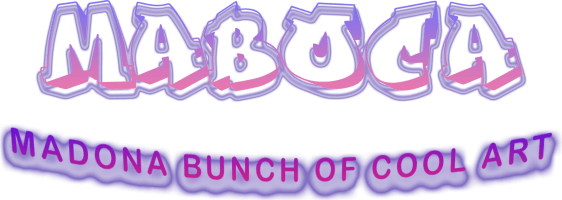TOMS AUNIŅŠ
MEDITATION. MADONA
Imagining that all life experience is an infinite ocean, each meditation session is like returning to a buoy that securely floats above the water. As soon as meditation ends, I can swim or dive infinitely far without worrying about not returning or getting lost, because I know that by the end of the day, I will return to it again. This creates trust in the ongoing process, derived from yet another aspect associated with meditation -
Freedom from the need to make any choices or the ability to function completely without the need to control anything. Thanks to this trust, mental space is freed up for new functions and tasks. An autopilot or cruise control mode is established, in which part of the control is carried out autonomously. One regular habit or routine leads to another and then to the next. This way, an optimal set of habits or routines is established, allowing a significant reduction of stress and insecurity to a minimum.
Meditation is not always enjoyable and is often done reluctantly, sometimes forcing oneself to do it. This serves as a training of willpower and confirmation, and as soon as the will is slightly trained, it allows using it even more in other everyday expressions where willpower is necessary. It becomes easier to motivate oneself for physical activities; we gain insight into the benefits provided by healthy activities; it might become easier to smoke or drink less because it is clear that feeling good is pleasant, and thus this PROCESS continues in a domino effect until a certain point. Focus may be lost, or it may slightly drift away, then a reorientation or recalibration is needed. Maybe something needs to be refreshed in practice; maybe meditation itself might not be the right one.
Meditating, I get rid of the excess. Often, we unconsciously associate spirituality with some special ability, skill, or set of attributes, which we acquire as some kind of superpowers. But in my experience, I observe the opposite - the longer and more consistently I meditate, the more I get rid of unnecessary burdens, unnecessary beliefs, and layers. Spirituality is not an additional commitment or duty; it's not attaching oneself to specific rituals, beliefs, value systems, or notions of what's right or wrong. Rather, it's a liberation from the excess; at times, the burden of any life experience is no longer observable.
There are various types of meditation - focusing on an object, on the breath, on the breath with closed eyes, on a mantra that is imagined or vocalized, walking, breathing, dancing, alone, in a group. Christian prayers can also be a form of meditation; you can meditate by looking at a painting or light, listening to music or nature. Each person may be closer to some of these, although it seems that their effect is quite universal, as indicated by the fact that in some cases, these techniques have remained unchanged for thousands of years. Meditations have levels of complexity and effectiveness.
The liberation of the mind occurs through its concentration on a self-chosen object or process. While the mind is focused on it, the rest of the mind rests.
Our mind is constantly active, solving problems, as there's no way it could be otherwise. Throughout all available nature, both introspective and exteroceptive, there's a universal law observed - nature loves cyclicity, a kind of On/Off mode. Any contrasts promote a healthy dynamic - natural cycles, temperature changes, day-night, wakefulness-sleep, muscle stress and relaxation, eating - fasting, as well as the active and inactive mode of the mind.
When asked if meditation makes a person better, David Lynch answered that it makes us who we are.
The practice of meditation is like a trajectory to exit the orbit - to get out of Earth's atmosphere, you have to go through the layer of cosmic debris we created ourselves. Going through it reveals new horizons.



